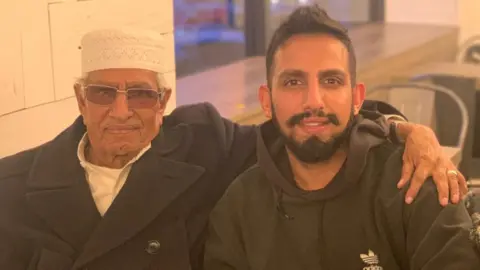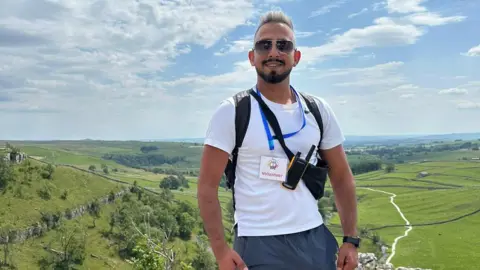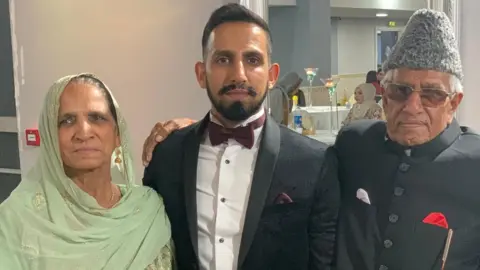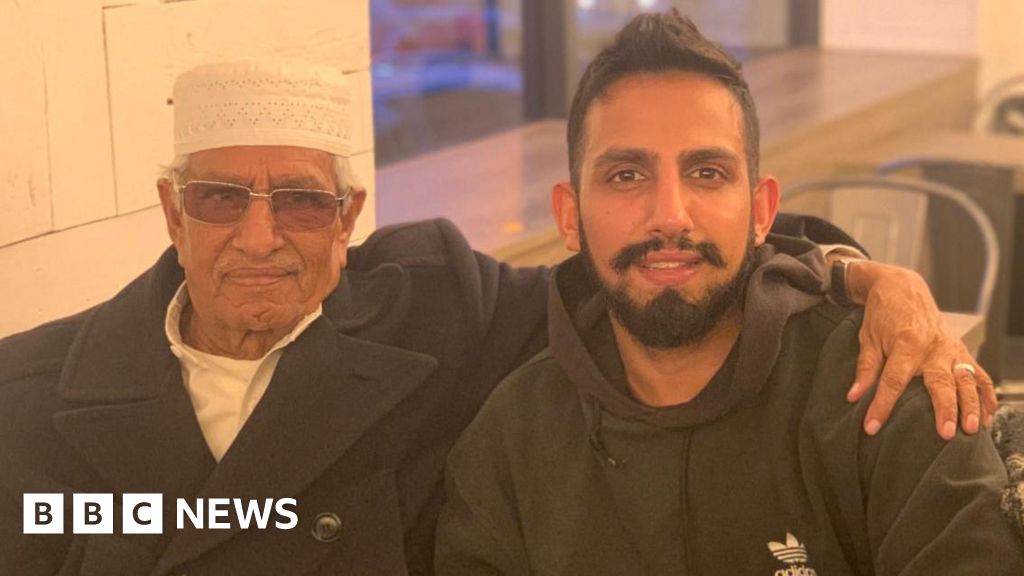 Mukhtar Rehman
Mukhtar RehmanWhen Mukhtar Rehman lost his father during the height of the Covid-19 pandemic, nothing could have prepared him for what followed.
The Bradford-based hair stylist and community worker held his father, Abdul Rehman, in his arms as he died – a moment that would haunt him.
“I had PTSD – I didn’t know how to process that emotion of loss,” he says.
After a long battle to cope with his own grief, during which he ultimately found peace and healing in nature, he is now hoping to do the same for other men in similar situations by launching a Yorkshire Dales walking group.
His father’s death was followed by a year of “silence and suppressed grief”, he says.
As the only son in his family, he says he automatically took on the role of “protector” for his mother and five sisters.
“It kind of fell on me, that responsibility,” Mukhtar, 38, recalls.
“I couldn’t express myself emotionally, I felt like I had to support others.
“It was autopilot – it only really sank in afterwards.”
 Mukhtar Rehman
Mukhtar Rehman“After the burial I couldn’t eat, couldn’t sleep, I had continuous memories of him passing,” he says.
“I still carried on and I blocked it out for a year.”
Mukhtar’s experience echo a wider issue he later recognised in his community.
“Men from ethnic minority backgrounds are less likely to access formal mental health services,” Mukhtar, from Heaton, explains.
“Yet many men are impacted by grief, loss, and cultural stigma around expressing emotion.”
Research recently published in the British Journal of General Practice found that South Asian men in the UK are more likely to experience mental health issues but are less likely to access talking therapies.
Many men navigate grief, anxiety, and distress alone, the study concluded, underlining the need for culturally sensitive, community-led approaches.
 Mukhtar Rehman
Mukhtar RehmanHe says two rounds of therapy “gave me the tools and the mechanisms to be able to manage myself a lot better”, with the outdoors also playing a key role.
“When I’m surrounded by nature, it almost heals me in a way I can’t explain,” he says.
Mukhtar also found purpose in his community work – a passion he says was passed down from his father.
On Sunday he is leading a walking group in Malham, with his group activities funded by a bursary from the Yorkshire Dales Community Champion scheme.
The walk will include mindfulness sessions and moments of quiet reflection, along with creating a space where men can “open up”.
Mukhtar hopes the project will provide a way to honour his father, help others heal, and remind people that grief doesn’t have to be faced alone.
“The whole idea is to get men talking to other men, getting out into the countryside,” he says.
“It’s not about fixing grief – it’s about facing it together.”
If you have been affected by any of the issues raised in this story, information and support can be found at the BBC’s Action Line.

